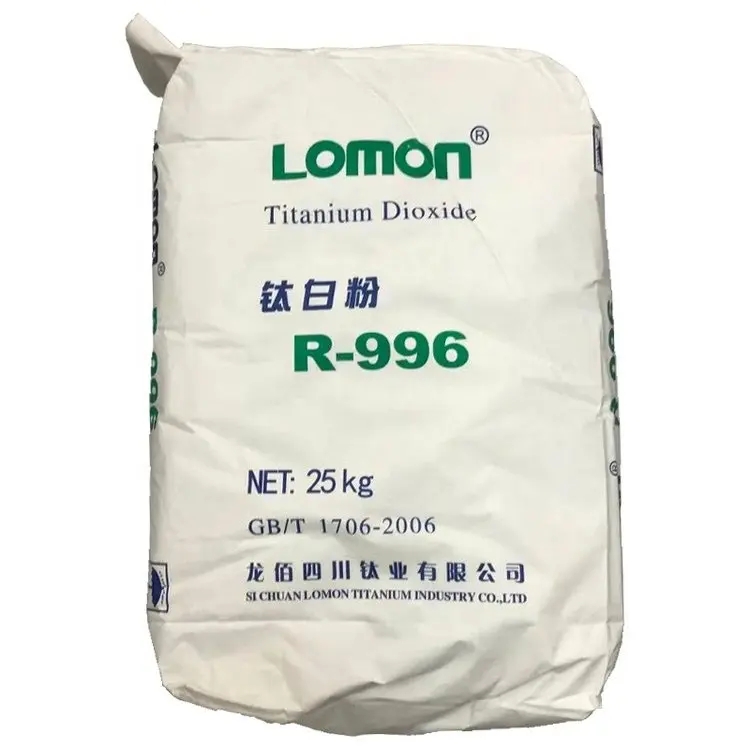
Nov . 05, 2024 19:27 Back to list
use of titanium dioxide in medicine
The Use of Titanium Dioxide in Medicine
Titanium dioxide (TiO2) has gained prominence in various fields due to its unique properties. Initially recognized for its applications in pigments and coatings, its role has now expanded to the medical realm as researchers explore its remarkable characteristics. This article will delve into the uses of titanium dioxide in medicine, highlighting its benefits, applications, and future prospects.
Properties of Titanium Dioxide
Titanium dioxide is a versatile compound that exhibits excellent photocatalytic activity, biocompatibility, and high stability. It is a white, opaque solid that is non-toxic and resistant to UV radiation, making it an ideal candidate for numerous applications in healthcare. These properties have made TiO2 particularly appealing for use in drug delivery systems, dental materials, and as a component in various medical devices.
Drug Delivery Systems
One of the leading applications of titanium dioxide in medicine is in the development of drug delivery systems. Due to its nanostructured form, TiO2 can be engineered to enhance the bioavailability of various drugs. Its high surface area allows for the loading of significant amounts of therapeutic agents. Furthermore, when combined with other materials, TiO2 can facilitate controlled drug release, ensuring that medications are delivered at the desired rate and concentration.
Titanium dioxide's photocatalytic properties are particularly advantageous in targeted therapy. By modifying its surface properties, TiO2 can be used to specifically target cancer cells. When exposed to light, TiO2 can generate reactive oxygen species (ROS), which can induce cytotoxicity in malignant cells while sparing healthy tissues. This selective action is crucial in minimizing side effects associated with conventional cancer treatments.
Antimicrobial Applications
Another essential use of titanium dioxide in medicine is its antimicrobial properties. TiO2 nanoparticles possess potent antibacterial and antifungal activities, making them valuable in wound healing and infection control. When incorporated into wound dressings and surgical sutures, TiO2 can inhibit the growth of pathogens, thereby reducing the risk of infection. This is particularly important in a clinical setting, where nosocomial infections can lead to severe complications.
use of titanium dioxide in medicine

The incorporation of titanium dioxide into coatings for medical devices, such as implants and prosthetics, also enhances their biocompatibility. TiO2-coated devices help prevent microbial colonization on their surfaces, promoting a healthier integration into the body and lowering the chances of rejection.
Dental Applications
In dentistry, titanium dioxide is increasingly being utilized in restorative materials. As an additive in dental composites, TiO2 not only enhances the aesthetics of dental restorations by improving their opacity but also provides antibacterial effects that are beneficial in preventing secondary caries. Its stability and non-reactivity with bodily fluids make it a suitable choice for various dental applications, including root canal sealers and dental cements.
Moreover, TiO2's photocatalytic properties are being harnessed to develop innovative dental materials capable of self-cleaning. When exposed to UV light, these materials can break down organic matter on their surfaces, contributing to better oral hygiene and reduced risk of dental diseases.
Future Perspectives
The potential for titanium dioxide in medicine continues to expand, driven by rapid advancements in nanotechnology and materials science. As research progresses, we can expect to see TiO2 being applied in novel ways, including in the realm of tissue engineering and regenerative medicine. The ability of TiO2 to support cellular adhesion and proliferation opens avenues for developing scaffolds and biomaterials that can aid in tissue regeneration.
Furthermore, as the focus on personalized medicine grows, titanium dioxide-based systems may be fine-tuned for specific patient needs, enhancing the efficacy of treatments while minimizing side effects.
Conclusion
In summary, titanium dioxide's unique properties make it a valuable asset in the field of medicine. Its versatility in drug delivery systems, antimicrobial applications, and dental materials highlights the compound's significant potential. As research continues to unveil new applications, titanium dioxide is poised to play an increasingly vital role in innovative medical solutions, ultimately improving patient outcomes and advancing healthcare technologies. The future of titanium dioxide in medicine is bright, with promising developments on the horizon that could transform various therapeutic practices.
-
Premium 6618 Titanium Dioxide for GPT-4 Turbo Applications
NewsJul.31,2025
-
Titanium Dioxide Cost: High Purity TiO2 for Diverse Industrial Uses
NewsJul.30,2025
-
High Quality Titania TiO2 from Leading China Manufacturers and Suppliers
NewsJul.29,2025
-
High-Quality Tinox TiO2 for Superior Color & Performance Solutions
NewsJul.29,2025
-
High Quality Titania TiO2 from Leading China Supplier & Manufacturer
NewsJul.29,2025
-
High-Performance r6618 TiO2 for Superior Whitening and Versatility
NewsJul.28,2025
